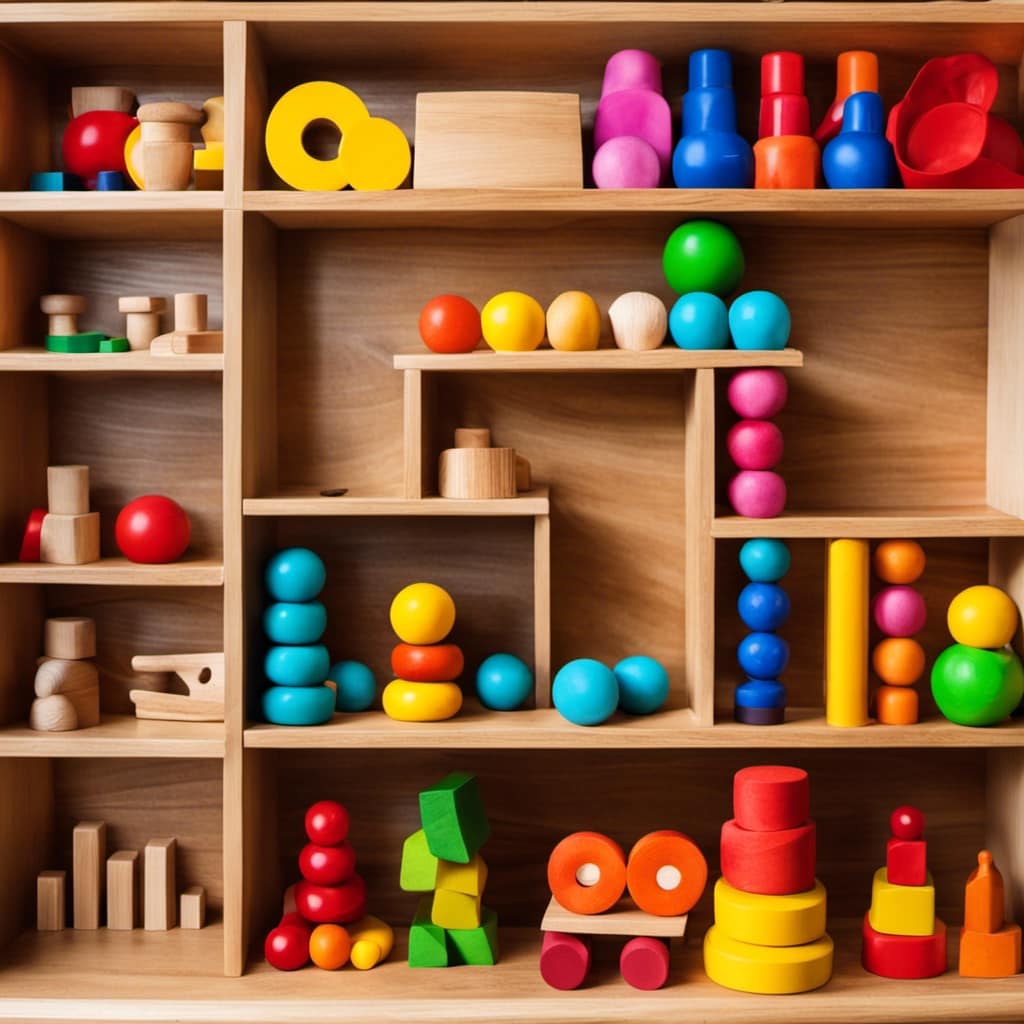As someone with expertise in child development, I understand the crucial role that cognitive, social, physical, and language foundations play in a child’s holistic growth.
Did you know that stimulating activities like pretend play and puzzles can enhance cognitive abilities? It’s true!
In this article, I will explore the essential foundations for child development and provide evidence-based strategies to nurture these skills.
From fostering social and emotional skills to encouraging physical growth and supporting language milestones, you’ll discover practical ways to promote optimal development in children.
Let’s dive in!
Key Takeaways
- Cognitive development is crucial for the growth of thinking abilities and can be promoted through stimulating activities like pretend play and puzzles.
- Maintaining a healthy balance between technology use and other activities is important to avoid negative effects on cognitive development.
- Regular physical activity enhances brain development by increasing blood flow, delivering oxygen and nutrients, and stimulating the release of neurotransmitters essential for optimal brain functioning.
- Social and emotional development are important for effective interaction with others, better academic performance, self-esteem, mental health, and interpersonal skills. It can be fostered through social skills development and emotional intelligence training.
The Importance of Cognitive Development
I believe that cognitive development plays a crucial role in a child’s overall growth and well-being. Early intervention is vital in promoting cognitive development, as it sets the foundation for future academic success.
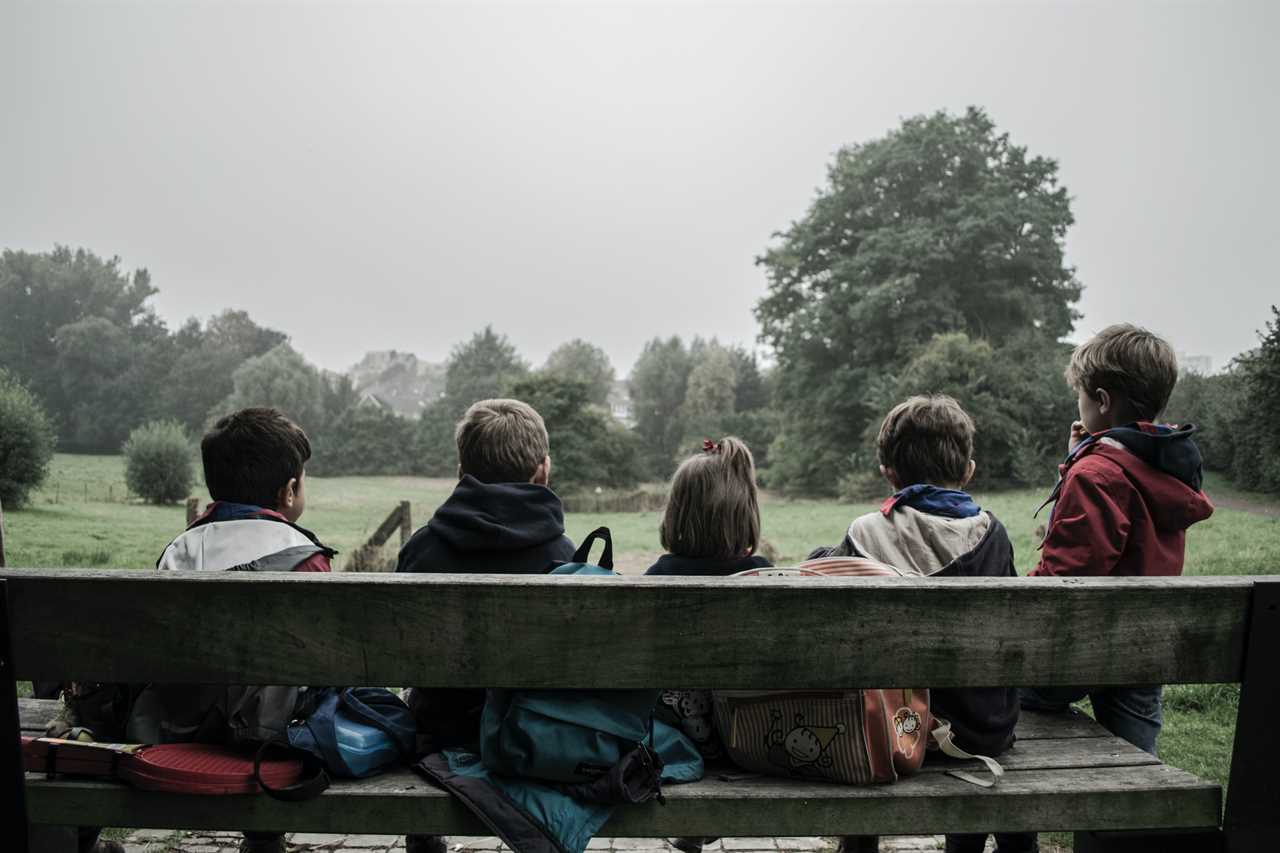
Research has shown that children who receive early intervention services have better cognitive skills and are more prepared for school. Cognitive development encompasses various abilities, including memory, attention, problem-solving, and perception. These skills are essential for academic success, as they enable children to learn, understand, and apply knowledge in different subjects.
By providing appropriate interventions and engaging in stimulating activities, such as puzzles and pretend play, we can support children’s cognitive growth and enhance their chances of academic achievement.
It is important to recognize the importance of early intervention and prioritize cognitive development to set children on a path towards success in their academic journey.
Nurturing Social and Emotional Skills
Developing effective social and emotional skills is crucial for building strong relationships and promoting mental well-being. Here are three strategies for emotional regulation and building empathy skills:
-
Mindfulness: Practicing mindfulness allows individuals to be present in the moment and acknowledge their emotions without judgment. By focusing on the present, one can better regulate their emotions and respond to others with empathy.
-
Active Listening: Actively listening to others involves giving them your full attention, understanding their perspective, and validating their emotions. This helps to build empathy and strengthen relationships.
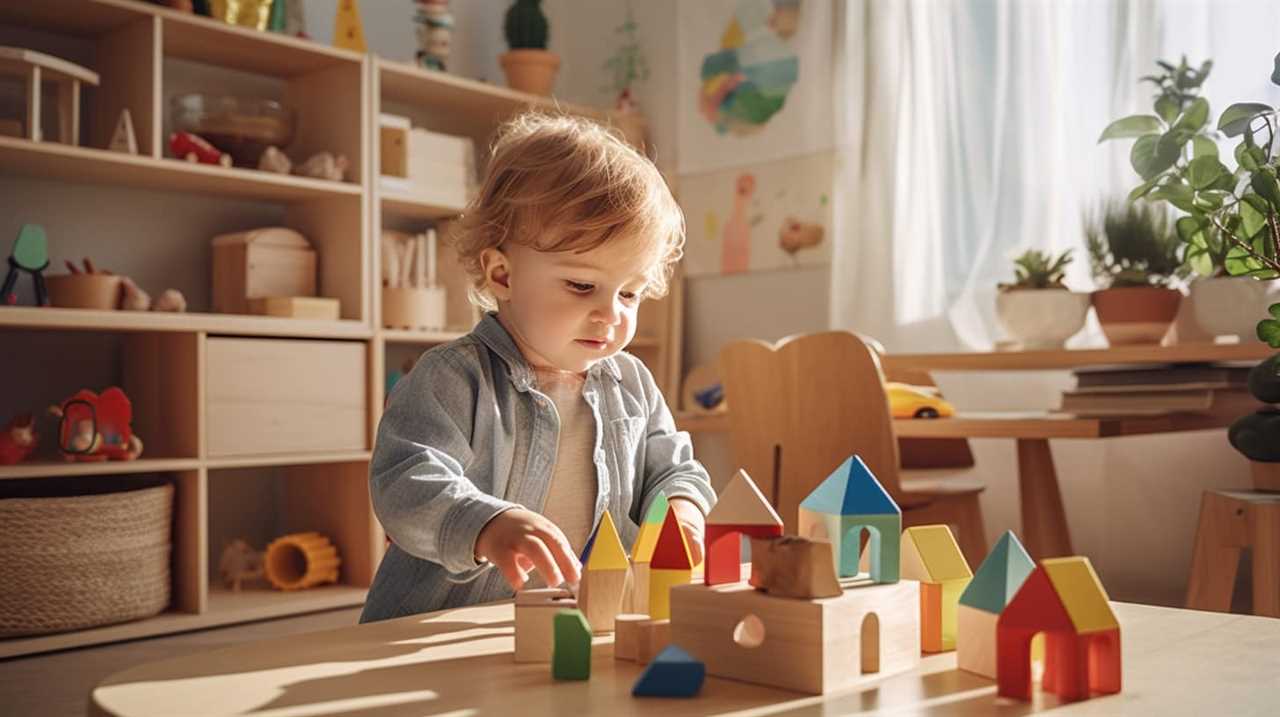
-
Self-Reflection: Taking the time to reflect on our own emotions and behaviors allows us to better understand ourselves and how we relate to others. By examining our own thoughts and actions, we can develop greater self-awareness and improve our ability to empathize with others.
Fostering Physical Growth and Well-being
Encouraging active play and outdoor activities supports overall growth and well-being. Outdoor play provides children with opportunities to engage in physical activities that promote motor skill development. Running, jumping, and climbing all contribute to the development of gross motor skills, while activities like drawing, building, and manipulating objects help to develop fine motor skills.
To illustrate the importance of outdoor play and motor skill development, consider the following table:
| Outdoor Play Activities | Motor Skills Developed |
|---|---|
| Running and jumping | Gross motor skills |
| Climbing and balancing | Balance and coordination |
| Riding a bike or scooter | Leg strength and coordination |
| Throwing and catching a ball | Hand-eye coordination |
Engaging in these activities not only helps children build physical strength and coordination but also enhances their overall cognitive development. So, let’s encourage children to spend more time outdoors, engaging in active play and developing their motor skills.
Language Milestones and Communication Skills
Engaging in conversations and reading books together with children promotes the development of vocabulary and language skills. It is through these interactions that children learn new words, understand sentence structures, and improve their communication abilities.
Here are three important aspects related to language milestones and communication skills:
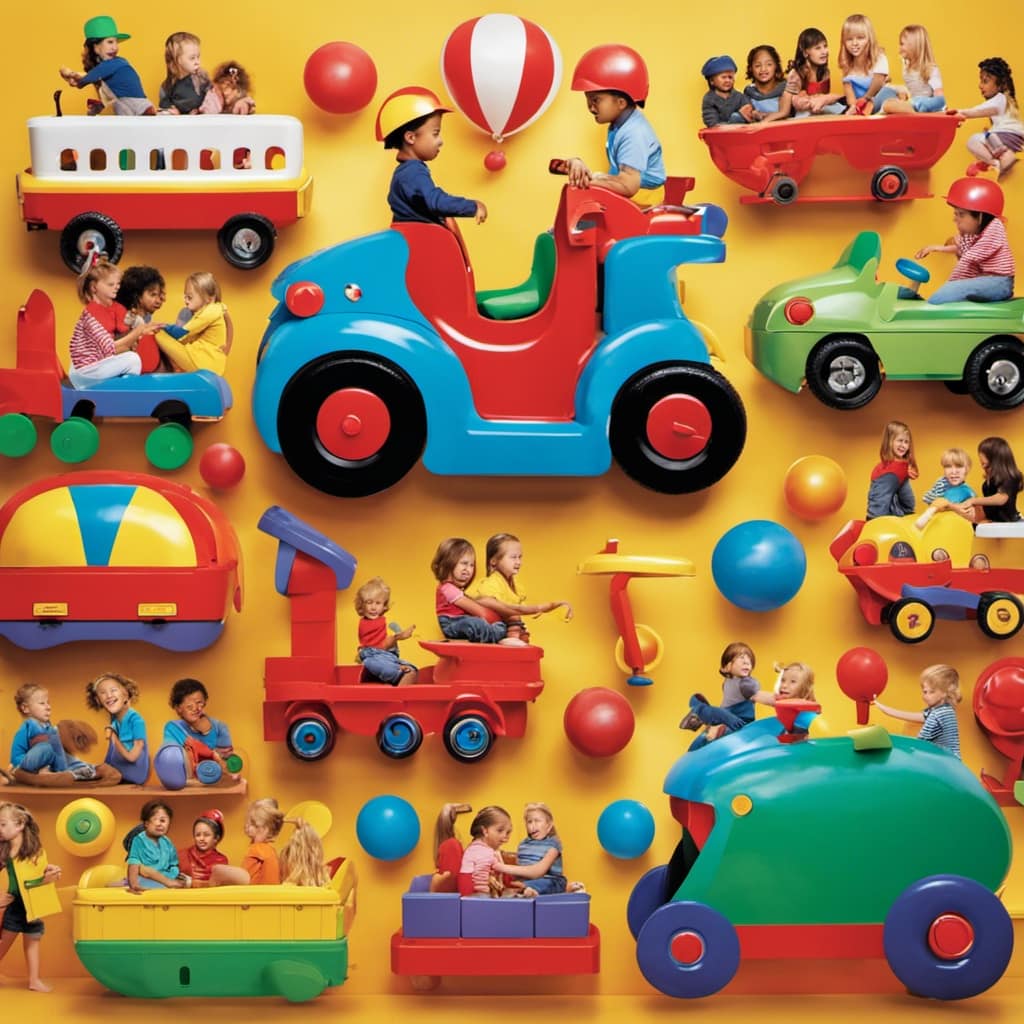
-
Speech therapy techniques: Speech therapy is a valuable tool in helping children with speech delays or language difficulties. Techniques such as articulation exercises, language games, and assistive technology can be used to support language and communication development.
-
Language milestones assessment: Assessing language milestones is crucial in understanding a child’s language abilities. These milestones serve as indicators of a child’s development and help identify any potential delays or areas of concern. By recognizing and supporting these milestones, we can foster effective communication skills and cognitive development in children.
-
Targeted interventions: Based on the language milestones assessment, targeted interventions can be implemented to support language and communication development. These may include specific exercises, activities, or therapy sessions tailored to the child’s needs. By utilizing these interventions, we can help children overcome language challenges and enhance their overall communication skills.
Promoting Cognitive Growth Through Play and Activities
Playing games and participating in stimulating activities like puzzles and pretend play are effective in promoting cognitive growth. These activities not only engage children in fun and enjoyable experiences but also enhance their problem-solving skills and cognitive abilities.
Research has shown that puzzles, in particular, have a positive impact on cognitive development. By attempting to solve puzzles, children learn to think critically, analyze information, and develop strategies to overcome challenges. This promotes their problem-solving skills and enhances their cognitive abilities. Puzzles also encourage the development of spatial awareness, hand-eye coordination, and logical thinking.
As children engage in these activities, they are actively exercising their brains and building neural connections that support cognitive growth. Therefore, incorporating puzzles and stimulating activities into a child’s playtime can have long-lasting benefits for their cognitive development.
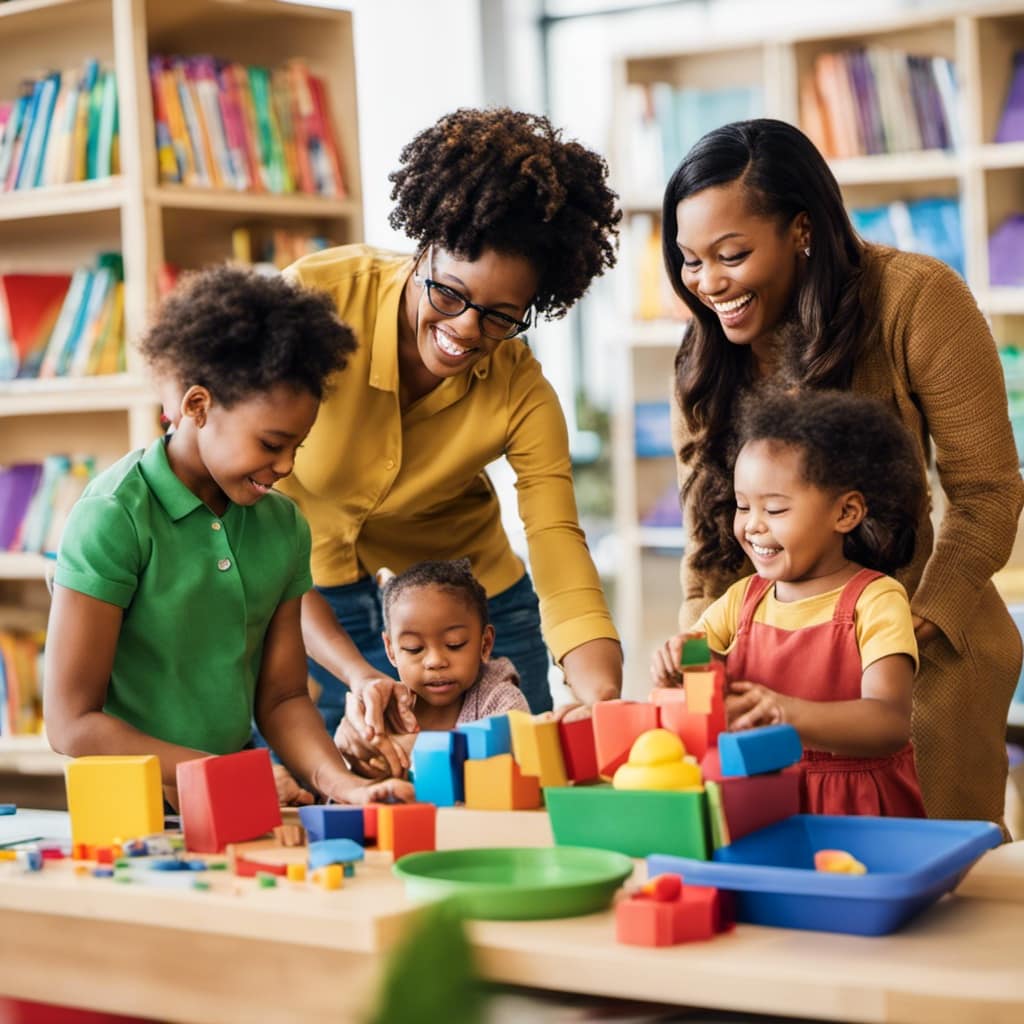
Enhancing Social Interaction and Cooperation
In my experience, one of the essential foundations for child development is enhancing social interaction and cooperation. By engaging in social interaction games and cooperative learning activities, children can develop vital skills that will benefit them throughout their lives. Here are three reasons why these activities are so important:
-
Building relationships: Social interaction games and cooperative learning activities provide children with opportunities to connect and form relationships with their peers. These interactions help them learn how to communicate effectively, collaborate, and understand different perspectives.
-
Developing empathy: Through social interaction and cooperation, children learn to understand and empathize with others. They develop skills such as active listening, problem-solving, and conflict resolution, which are essential for healthy relationships and successful teamwork.
-
Promoting inclusivity: Social interaction games and cooperative learning activities encourage inclusivity and create a sense of belonging. Children learn to appreciate diversity, respect others’ opinions, and work together towards a common goal.
Supporting Physical Development Through Active Play
I believe that supporting physical development through active play is crucial for children’s overall growth and well-being. Active play, especially outdoor exploration, provides numerous benefits for children’s development.
| Active Play Benefits | Outdoor Exploration |
|---|---|
| Enhances gross motor skills | Promotes physical fitness |
| Improves coordination and balance | Stimulates sensory development |
| Builds bone and muscle strength | Boosts immune system |
| Supports cognitive development | Fosters creativity and imagination |
| Encourages social interaction | Reduces stress and anxiety |
Engaging in active play allows children to develop their physical abilities while also promoting cognitive, social, and emotional growth. Through outdoor exploration, they can experience the natural world, stimulate their senses, and develop a sense of curiosity and wonder. Additionally, active play provides opportunities for social interaction, cooperation, and problem-solving. It also helps children develop resilience, self-confidence, and emotional regulation. Therefore, it is essential to prioritize and encourage active play and outdoor exploration as part of children’s daily routines, as it contributes significantly to their holistic development.

Boosting Vocabulary and Language Skills
Engaging in meaningful conversations with others can greatly enhance vocabulary and language skills. Here are three vocabulary building activities and language development strategies that can support this process:
-
Read aloud: Reading books together not only promotes comprehension but also exposes children to a wide range of words and language structures. Encourage your child to ask questions and discuss the story to further engage their language skills.
-
Word games: Play word games like ‘I Spy’ or ’20 Questions’ to encourage vocabulary expansion and critical thinking. These games provide opportunities for children to describe objects, ask and answer questions, and use new words in context.
-
Storytelling: Encourage your child to create and share their own stories. This activity fosters creativity, imagination, and language development as they construct narratives and use language to communicate their ideas.
Encouraging Fine Motor Skill Development
Encouraging fine motor skill development involves providing toys and materials that support the development of hand-eye coordination and finger dexterity.
Fine motor activities and sensory play are essential for children’s overall development. These activities engage the senses, allowing children to explore and manipulate objects, which in turn strengthens their fine motor skills.
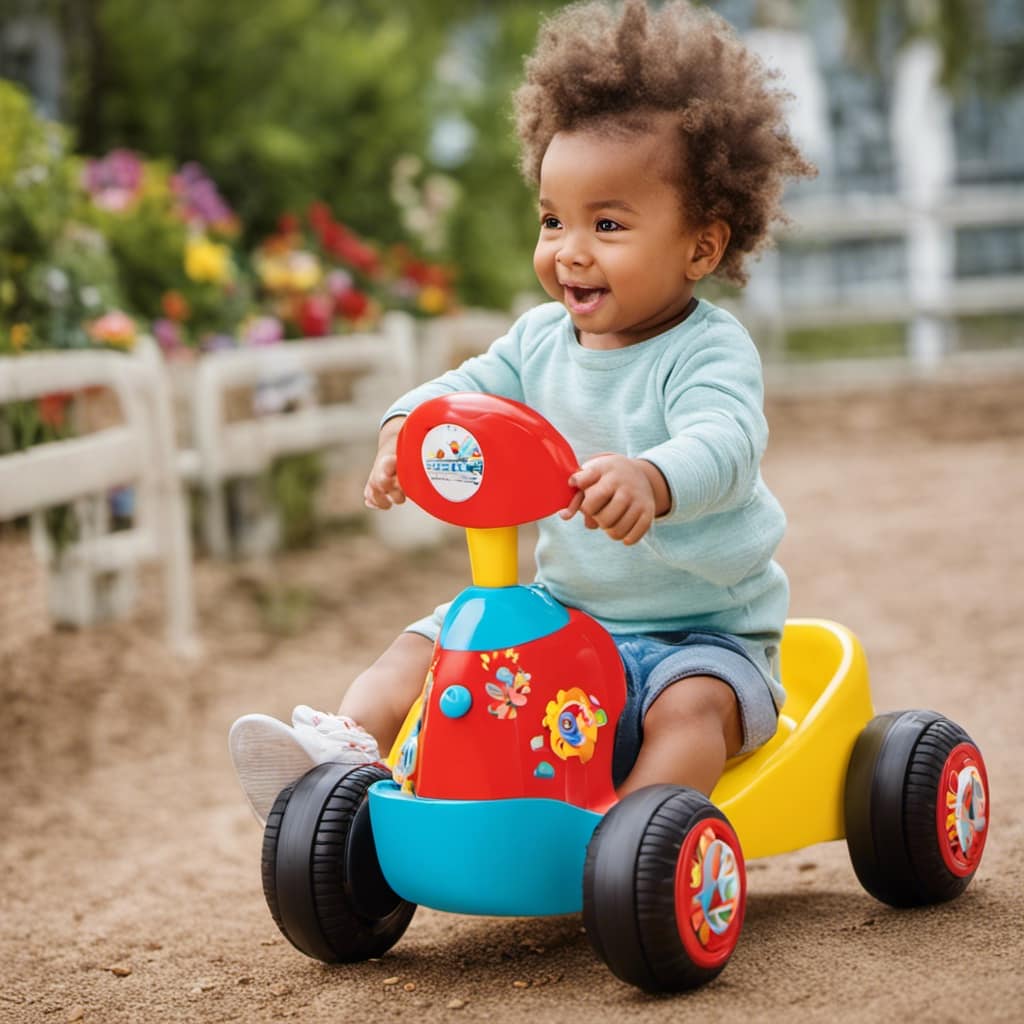
Sensory play, such as playing with sand or water, helps children refine their hand movements and improve their grip. Building with blocks, playing with puzzles, and using art materials like crayons and scissors also promote fine motor skill development.
These activities encourage children to use their hands and fingers in precise and coordinated ways, enhancing their ability to perform tasks like writing, tying shoelaces, and buttoning clothes.
Creating an Environment for Exploration and Movement
Creating a space that encourages exploration and movement is important for a child’s overall growth and development. It is crucial to provide a safe environment where children feel comfortable to explore and engage in physical activities. Here are three reasons why creating a safe space for exploration and movement is essential:
-
Encourages outdoor activities and play: Outdoor play promotes physical development, enhances gross motor skills, and allows children to experience nature. It also provides opportunities for social interaction, imagination, and creativity.
-
Stimulates cognitive development: Movement and exploration stimulate brain activity, improving cognitive functions such as memory, attention, and problem-solving skills. Physical activities boost blood flow to the brain, delivering necessary oxygen and nutrients for optimal brain functioning.
-
Supports social and emotional development: Engaging in physical activities with others fosters cooperation, teamwork, and social skills. It also helps children develop resilience, self-confidence, and emotional regulation.

Strategies for Supporting Language and Communication Development
I believe that actively participating in conversations and reading books together can greatly enhance a child’s vocabulary and language skills. These activities provide opportunities for children to hear and learn new words, understand sentence structure, and develop communication skills.
Additionally, incorporating speech therapy techniques and using technology for language development can further support a child’s language and communication skills. Speech therapy techniques, such as modeling correct pronunciation, can help children improve their speech and language abilities. Technology, such as interactive apps and games, can engage children in fun and educational activities that promote language development.
However, it is important to strike a balance and ensure that technology is used in moderation, as face-to-face interaction and hands-on experiences are crucial for language and social development.
Frequently Asked Questions
What Are Some Examples of Activities That Promote Cognitive Growth in Children?
Problem solving games, puzzles, memory exercises, reading comprehension activities, and critical thinking exercises are some examples of activities that promote cognitive growth in children. These activities challenge their thinking abilities and help develop their problem-solving skills.
How Does Excessive Screen Time Affect Cognitive Development in Children?
Excessive screen time negatively affects cognitive development in children. Studies show that prolonged use impairs attention, memory, and problem-solving skills. Parental monitoring plays a crucial role in mitigating these effects.
What Are the Benefits of Regular Physical Activity for Brain Development in Children?
Regular physical activity plays a crucial role in brain development for children. Outdoor play and exercise benefit cognitive functions by increasing blood flow, delivering nutrients, and stimulating neurotransmitter release, all supporting optimal brain functioning.
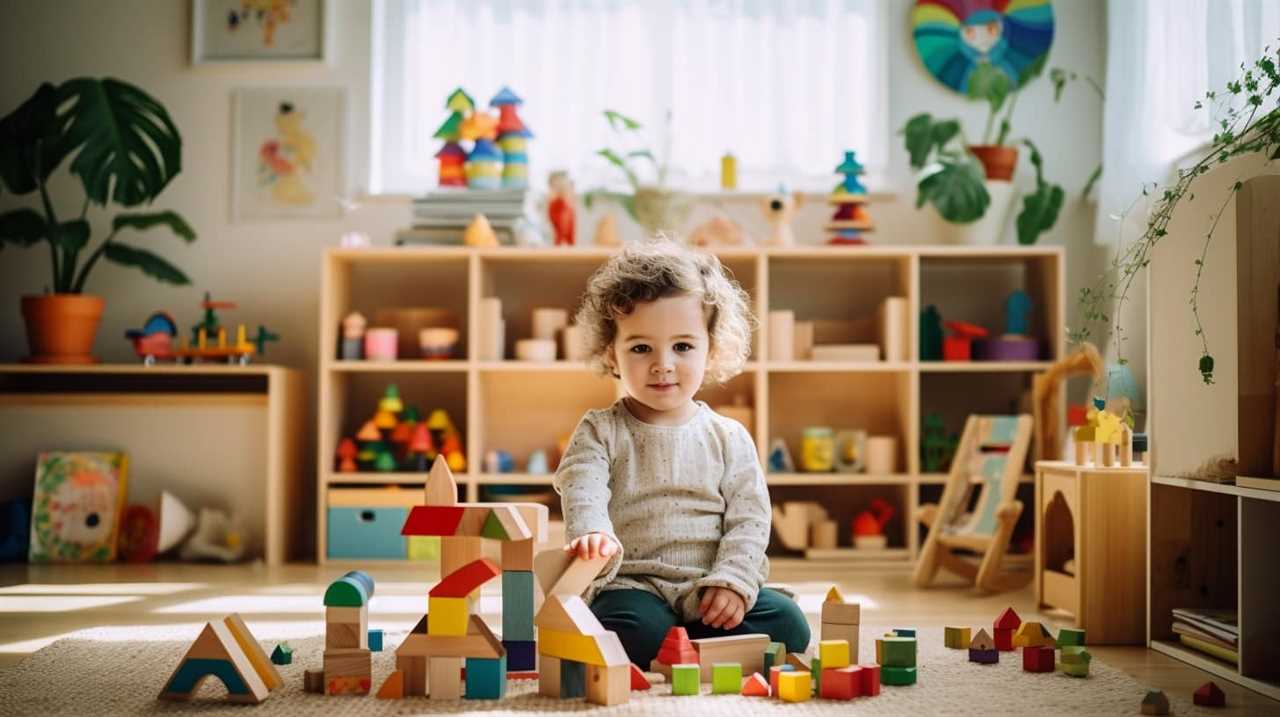
How Do Social Skills Contribute to Academic Performance and Self-Esteem?
Social skills and emotional intelligence play a crucial role in academic performance and self-esteem. Effective interaction and understanding and managing emotions contribute to overall well-being. Developing strong social skills leads to better outcomes in various areas of life.
What Are Some Strategies for Supporting Language and Communication Development in Children With Speech Delays?
Some strategies for supporting language and communication development in children with speech delays include speech therapy, targeted exercises, and assistive technology. These interventions can help improve communication skills and enhance overall development.
Conclusion
In conclusion, the essential foundations for child development are crucial for their cognitive, social, physical, and language growth.
By engaging in stimulating activities and limiting screen time, we can enhance their cognitive abilities.
Nurturing social and emotional skills through effective interaction and emotional intelligence promotes better academic performance and mental health.
Encouraging physical growth through active play and providing a safe environment for exploration fosters overall well-being.

Lastly, boosting language and communication skills through conversations, reading, and assistive technology supports their language milestones.
By implementing these strategies, we can provide a solid foundation for a child’s development.



